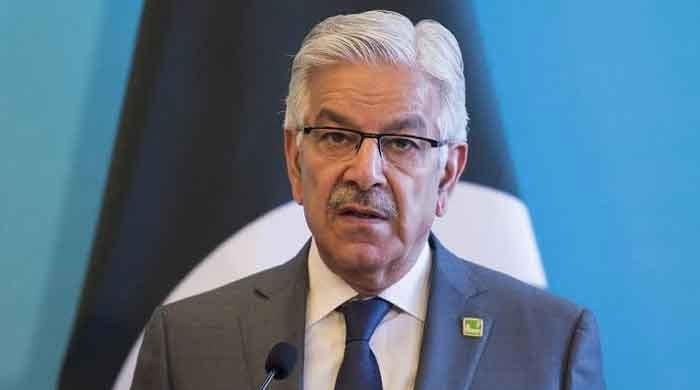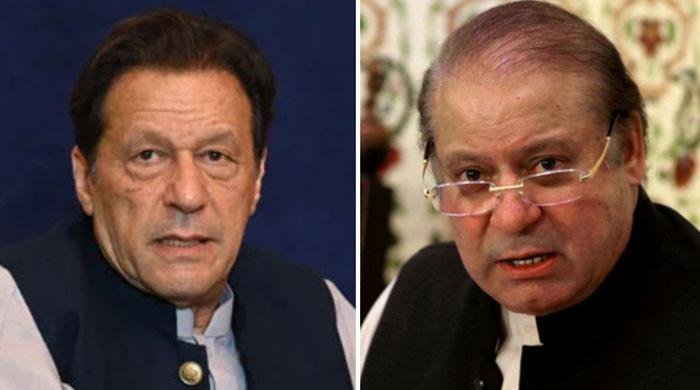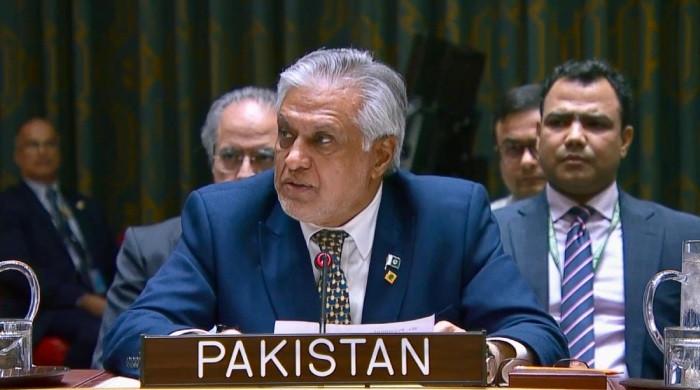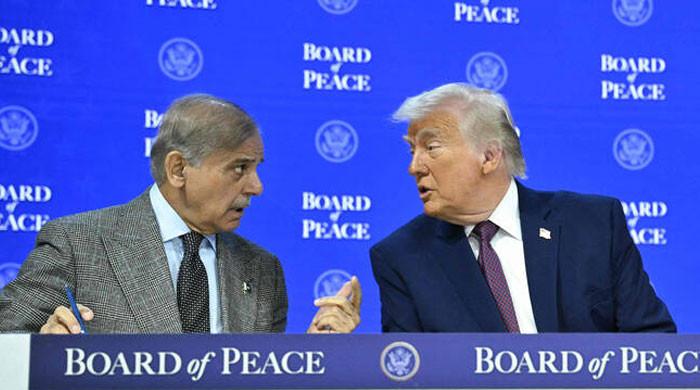Governor can set CM trust vote date in ongoing session: LHC
Punjab CM should always have the support of 186 members, says Justice Asim Hafeez
January 11, 2023
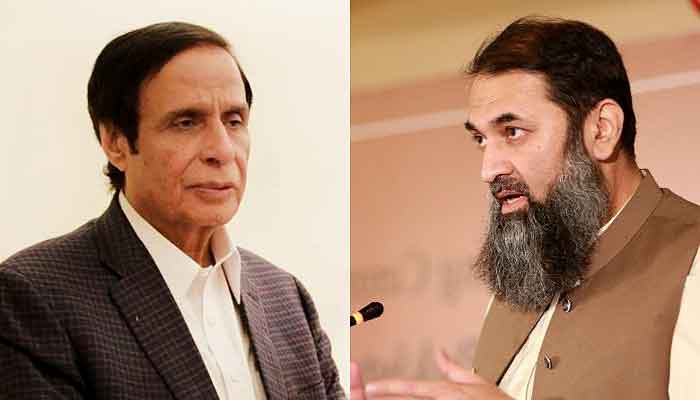
- AGP says taking trust vote on governor’s order mandatory for CM.
- Justice Abid Aziz Sheikh says case to be decided on merit.
- Decision to be made through floor test, says Justice Sheikh.
LAHORE: The Lahore High Court (LHC) on Wednesday said the governor, during an ongoing session of the provincial assembly, was authorised to set a date for the chief minister to take a vote of confidence, which the latter would be bound to comply with.
The court made these comments while hearing Punjab Chief Minister Parvez Elahi's petition challenging Governor Baligh Ur Rehman’s order that denotified the Pakistan Muslim League-Quaid (PML-Q) leader as the chief minister.
The governor had denotified CM Elahi last month after he failed to take a vote of confidence from the Punjab Assembly.
A five-member bench headed by Justice Abid Aziz Sheikh, comprising Justice Chaudhry Muhammad Iqbal, Justice Tariq Saleem Sheikh, Justice Muzamil Akhtar Shabir, and Justice Asim Hafeez, heard the case.
At the last hearing on December 23, the bench restored the provincial cabinet and Parvez Elahi as CM after he assured the court he would not dissolve the assembly after regaining control of the office.
The LHC had also issued notices to all the parties in the case and summoned them on January 11 (today).
The court suspended the governor's order till the next hearing and also did not make it compulsory for the chief minister to take a vote of confidence on the Punjab governor's orders.
During today’s hearing, Justice Sheikh asked Elahi’s counsel if he wanted the case to be decided on merit or if his client was ready to take the vote of confidence.
“A decision on chief minister has to be made through a floor test,” added Justice Sheikh.
Ali Zafar responded that his client became the chief minister by taking votes in the assembly.
Upon hearing this, Justice Hafeez remarked that the chief minister should always have the support of 186 members.
On the other hand, Attorney General for Pakistan Mansoor Awan emphasised that it was mandatory for the CM to take a vote of confidence on the governor’s order.
However, Justice Hafeez remarked that neither parties are willing to speak about the number game in the assembly.
The AGP once again emphasised that the governor had the power to ask the CM to take a vote of confidence. He added that the matter has also gone beyond the debate over the need for a reasonable time to hold voting.
On this, Elahi’s counsel told the bench that the AGP had not gotten anything in writing.
“No one had stopped the chief minister from taking a vote of confidence. Why is there a need to have anything in writing?” responded the AGP.
After hearing both sides, Justice Sheikh said they would decide the case on merit.
After this, Elahi’s counsel started his arguments.
In his arguments, Zafar told the bench that when Governor Punjab removed the chief minister and the cabinet, the opposition took back the no-confidence motion.
The counsel added that the Pakistan Tehreek-e-Insaf and PML-Q were ready for the motion.
"They are tying to play a political game. This is tantamount to fraud with the Constitution," said Zafar.
Moving on, the lawyer agreed with the bench that a governor can ask a chief minister to take a vote of confidence but contested that it was the speaker’s prerogative to give a date for the vote.
“Even the chief minister cannot ask the speaker to take a vote of confidence,” said Zafar. He urged that the chief minister could not be punished for the speaker’s failure to summon a session.
At this point, Justice Hafeez intervened and remarked: “Under the constitution, the governor and speaker are unbiased. Over here the speaker and governor are acting as spokespersons of political parties.”
Furthermore, on Zafar’s contention over the speaker’s prerogative to determine a date of the vote, the court observed that the governor could determine a date of the vote of confidence during an ongoing session.
“If this cannot happen then the chief minister will say that he won't be taking a vote of confidence as a session is ongoing,” observed Justice Sheikh. He added that the speaker could also give a separate date.
Upon the speaker’s mention, Punjab Assembly Speaker Sibtain Khan’s lawyer intervened and told the bench that his client had given a ruling on the issue.
However, Justice Sheikh told the lawyer that the court did not have the ruling and would hear the speaker’s point of view as well.
Moving on, Zafar told the court that his client had no issues with taking a vote of confidence but it was a matter of “principle”.
At this point, the court adjourned the hearing till tomorrow (Thursday).







